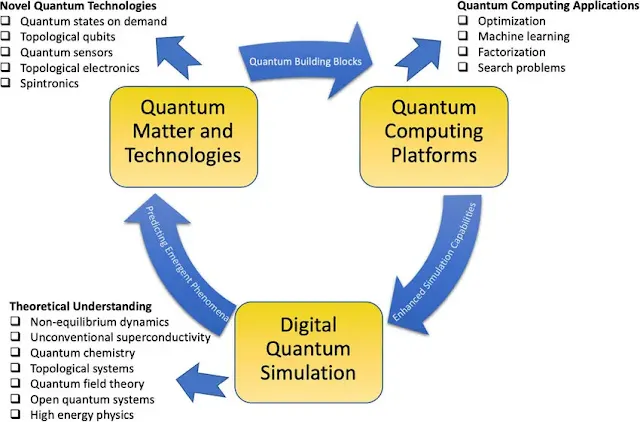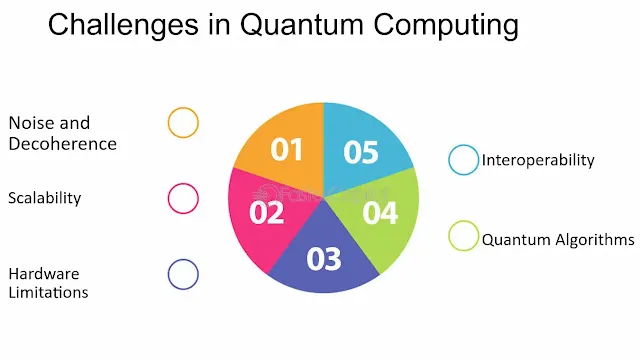Estimated Reading Time: 5 minutes
What Is Quantum Computing and What Could It Mean for the Future?
Unlike classical computers, which rely on bits to process information as 0s or 1s, quantum computers use quantum bits (qubits), which can represent and store information in both states simultaneously. This fundamental difference could unlock new possibilities across various industries, ranging from healthcare and finance to artificial intelligence and cybersecurity. In this article, we will explore what quantum computing is, its potential applications, and how it could shape the future.
What Is Quantum Computing?
At its core, quantum computing is a new paradigm of computing based on the principles of quantum mechanics, the theory that describes the behavior of matter and energy at the smallest scales. In classical computers, bits are the smallest units of data, but in quantum computers, qubits take their place. These qubits have unique properties, such as superposition and entanglement, which allow them to process vast amounts of information simultaneously.
Superposition: The Key to Parallelism
Superposition is a phenomenon where a qubit can exist in multiple states at once. Unlike a classical bit that is either 0 or 1, a qubit can be both at the same time, which exponentially increases the computing power. This ability to perform multiple calculations simultaneously could lead to breakthroughs in solving complex problems that are impossible or take too long for classical computers.
Entanglement: The Quantum Link
Entanglement occurs when two qubits become linked, such that the state of one qubit directly affects the state of another, even if they are separated by vast distances. This property enables quantum computers to perform computations in ways that classical computers cannot replicate. It is this interconnectedness that offers the potential for quantum computing to revolutionize fields like cryptography, machine learning, and optimization.
Why Quantum Computing Matters: Potential Applications
Quantum computing is more than just a theoretical concept—it has the potential to transform a wide range of industries. Let’s explore some key areas where quantum computing could make a significant impact.
1. Quantum Computing and Healthcare
Quantum computing could lead to groundbreaking advances in drug discovery and personalized medicine. Classical computers struggle with simulating the behavior of molecules and proteins, but quantum computers, with their immense computational power, could model complex biological systems accurately and efficiently. This could lead to faster, more effective treatments for diseases like cancer, Alzheimer’s, and genetic disorders.
2. Quantum Computing in Finance
The finance industry stands to benefit greatly from quantum computing in several ways. Portfolio optimization and risk analysis are areas where quantum algorithms could outperform classical methods. Quantum computing could also enhance fraud detection, improve predictive models for stock prices, and speed up financial transactions by processing large datasets more efficiently.
3. Quantum Computing and Artificial Intelligence
Artificial intelligence (AI) and machine learning (ML) are already transforming the way we live and work. However, training AI models often requires significant computational power, especially for tasks involving large datasets. Quantum computing could revolutionize AI by allowing faster data analysis, pattern recognition, and decision-making, making AI systems smarter and more responsive.
4. Quantum Computing and Cybersecurity
One of the most widely discussed applications of quantum computing is its potential to break current encryption methods. Traditional cryptography relies on mathematical problems that are difficult to solve with classical computers. However, quantum computers can theoretically solve these problems much faster, posing a threat to online security. On the flip side, quantum computing could also lead to quantum encryption, a new form of security that is much more robust against hacking and cyberattacks.
The Challenges of Quantum Computing
While the potential of quantum computing is immense, there are several challenges that need to be overcome before it becomes mainstream.
1. Quantum Hardware Development
Building and maintaining a quantum computer is incredibly complex. Qubits are extremely sensitive to their environment, and even the slightest disturbance can cause errors in calculations. Researchers are working on improving quantum error correction and developing more stable qubits to make quantum computers reliable.
2. Scalability
Current quantum computers have a relatively small number of qubits. To achieve the processing power needed for practical applications, quantum computers must scale up. Quantum coherence (the ability of qubits to maintain their quantum state) and entanglement need to be preserved over longer periods and across more qubits to handle real-world problems.
3. Software and Algorithms
Quantum algorithms are still in their infancy. While there are promising quantum algorithms that can outperform classical algorithms for specific tasks, more research is needed to develop algorithms that can solve a wide range of practical problems efficiently. Quantum programming languages and tools are also being developed, but they require a completely new approach compared to classical computing.
What Does the Future Hold for Quantum Computing?
The future of quantum computing is both exciting and uncertain. While we are still in the early stages, quantum computers have already demonstrated their ability to solve problems that were previously out of reach for classical computers. Over the next few years, we can expect significant breakthroughs in quantum hardware, software, and algorithm development.
One of the most anticipated milestones is the development of quantum supremacy, where quantum computers can perform tasks that are beyond the capabilities of the most powerful classical supercomputers. As quantum computers become more powerful, they could enable new innovations in science, engineering, and technology that we can’t yet imagine.
The Quantum Revolution Is Coming
Quantum computing represents a profound shift in how we approach computation and problem-solving. While there are still many obstacles to overcome, the potential benefits are enormous. From revolutionizing medicine and finance to enhancing artificial intelligence and cybersecurity, quantum computing could reshape entire industries and change the way we interact with technology. For businesses and individuals alike, staying informed about the developments in quantum computing could be key to staying ahead in the future.
By understanding what quantum computing is and how it could impact the future, we can better prepare for the next wave of technological transformation. Quantum computing is not just a far-off idea; it is a real and emerging force that will shape the world for years to come.
Key Takeaways:
- Quantum computing is based on the principles of quantum mechanics, utilizing qubits instead of classical bits.
- Quantum computing has the potential to revolutionize fields such as healthcare, finance, artificial intelligence, and cybersecurity.
- While there are significant challenges to overcome, including hardware development, scalability, and algorithm creation, the future of quantum computing holds enormous promise.
- Understanding the potential of quantum computing will be crucial for businesses and individuals as it begins to impact various industries in the coming years.
Reference Source:
https://www.brookings.edu/articles/the-future-of-quantum-computing-the-techtank-podcast/
https://www.plainconcepts.com/quantum-computing-potential-challenges/
https://www.linkedin.com/pulse/rise-quantum-future-what-computing-means-technology-deepak-waghmare




